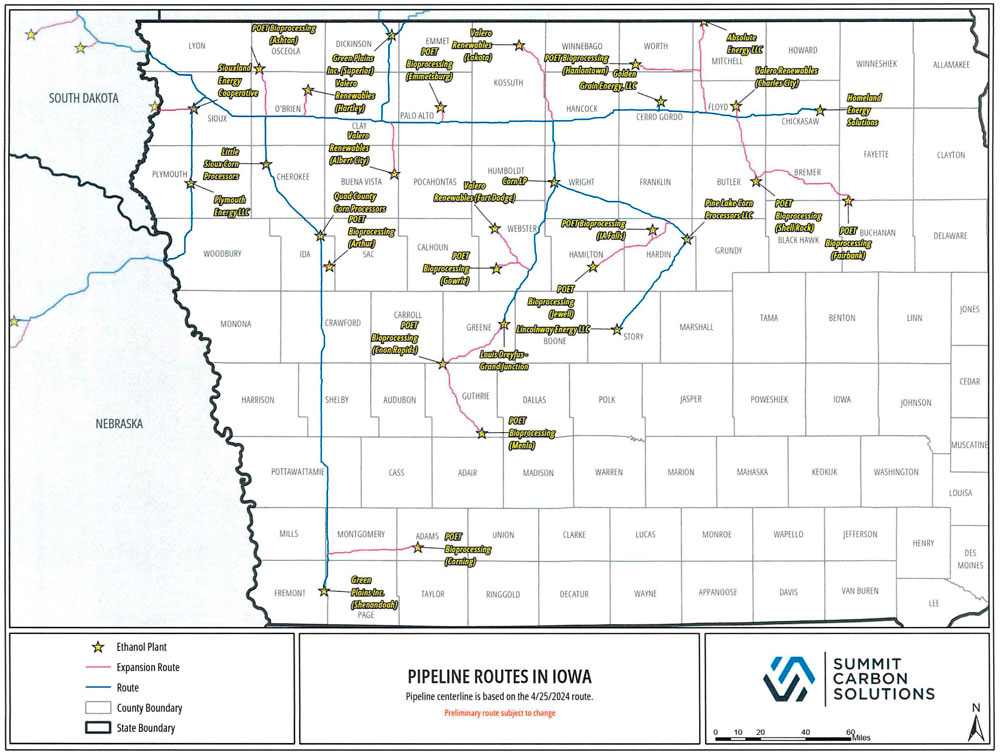Never-ending Road Trip

From left, Hans Wronka, Gretchen Hintz-Wronka, Gus Wronka, Cecelia Wronka and Reva Wronka stand in from the home of Rob and Shirley Roethler. The house was formerly a school where Charles City farm boy and future World War II fighter pilot Loren Hintz attended as a student.
Wronka family closing in on home site of WWII fighter pilot Loren Hintz
By John Burbridge
You could almost forgive Cecelia or Gus Wronka if they had queried from the back of their father’s SUV, “Are we there, yet?”
Yet this family road trip was truly more about the journey than the destination. And just when you felt the transglobal, multi-generation odyssey searching out the beginning and end of the life of a Charles City farm boy turned World War II fighter pilot was finally reaching its conclusion, a light flashes on Hans Wronka’s dashboard.
“And the plot thickens,” he said in response to the low-fuel warning. “Maybe we’ll find out what it’s like to walk one-and-a-half miles to school.”
Cecelia, Gus, Hans, Reva — wife of Hans Wronka — and Gretchen Hintz-Wronka — mother of Hans and surviving daughter of Loren E. Hintz, spent a good portion of last Saturday traversing the rural back roads southeast of Charles City.

First Lieutenant Loren E. Hintz was a Charles City farm boy, poet, writer, actor and World War II fighter pilot. His P-47 single-seat plane was shot down in Italy during the final stages of the war.
“I think we may be onto something here,” Hans says as he slowly drives up to a farmhouse that may or may not be the childhood home of his grandfather.
“No,” Gretchen adamantly responds. “It was a Iowa-style farmhouse. And a road ran through the property. That’s not a road … that’s a driveway.”
Some time earlier, the Wronka family dropped in on home of Rob and Shirley Roethler. When a old photo of the Roethler’s home and the woodshop next to it ran in the Charles City Press as the former schoolhouse of Hintz — Hans provided the photo in hopes someone might recognize the site so they could zero in on the whereabouts of the farmhouse where from a young Loren walked approximately one-and-a-half miles to school — a neighbor notified the Roethler’s, who in turn notified the Press.
Upon meeting the Roethler’s, Gretchen learned that Shirley went to school in New Hampton where Loren’s surviving wife, Gertrude Hintz, was a prominent figure within the town’s school system.
“I remember her well,” Shirley said of Gertrude. “Everyone in town knew who Gert was.”
After discussing with the Roethler’s the possible whereabouts of the said farmhouse, the Wronka’s decided to travel further east, then south in hopes in finding the road that supposedly bisected the homestead.
With Reva reading from Loren’s autobiography he composed before going off to war, it was revealed that one of his favorite fishing holes was a Gizzard Creek that ran adjacent to his home.
“It says here it was named Gizzard Creek after one of (Loren’s) friends fell in and later said, ‘I almost drowned up to my gizzard’,” Reva said while relating a passage.
“I wonder if people around here even know of a Gizzard Creek … or know why it’s called that,” Hans said.
On a whim, Hans pulled up next to farmer piloting a tractor along a back road’s shoulder.
“He’s probably going to think you’re crazy,” Gretchen warned.
“Too late,” Hans said as he lowered the passenger-side window.
Turns out the farmer knew of Gizzard Creek and was accommodating enough direct the clan to its location.
On April 21, 1945, First Lieutenant Loren Hintz and the 79th Fighter Group of the U.S. Army Air Force Air Corps flew out on a mission to seek and destroy enemy guns near Bologna, Italy. It was near the end of the war. Hintz was piloting a single-seated P-47 Thunderbolt. He had flown successful missions before, and was trying to accumulate a quota of missions to allow him to come back home to his wife (Gertrude) and daughter (Gretchen), who was born less than a year and a half before.
Hintz’s formation began to take anti-aircraft from desperate ground resistance. It would be the enemy’s last stand in Bologna, but it would also be Hintz’s last day among the living. He and his plane went down in a blazing fireball.
Hintz was initially classified as “missing in action” before a chaplain and a graves person were able to recover a .45 caliber pistol with a serial number of the one issued to Hintz, and several charred bones near the crash site to re-classify Lt. Hintz as “killed in action.”
Other than being a skilled fighter pilot, the Charles City farm boy had a lot going for him. He was a published poet, author and playwright, and even dabbled in theatre acting. Had Hintz returned from the war, he would have undoubtedly been a civic mover and shaker … at least he would if he wanted to keep up with his community-active wife.
Though the bones were placed in a grave below a marble cross bearing his name at the American Cemetery in Florence, Italy, the rest of Hintz’s body as well as what remained of his aircraft were never recovered.
For the family, there was still a mystery of what happened. Then several years ago, Hans was contacted by Piero Fabbri and Marie Bonfini, a pair of archaeological researchers who were traversing Italy in search of crash sites of WWII fighter pilots. Though research and interviews, they were able to locate the likely place where Hintz’s P-47 went down.
After working out the details with Italian authorities, Hans and the researchers were granted permission to excavate the site locate outside Budrio, Italy, this past summer. With multimedia platforms, they documented the project as “Finding Loren”.
The excavation project, which Hans, Gretchen, Riva, Gus, Ceclia and Hans and Riva’s youngest son, Caspar, were present for, yielded the plane’s engine and machine gun as well as Loren’s pocket knife and dog tags.
“When I held those dog tags … that was an emotional moment for me,” Hans said.
They also discovered bone fragment that is likely Loren’s, but still needs to DNA tested for verification.
This past Veteran’s Day, Hans gave a presentation of “Finding Loren” at the New Hampton Community Center.
“We had a great turnout,” said Hans, a Duluth, Minn. resident.
Before heading back to Minnesota — Gretchen still lives in Iowa — the family made their long, winding search for the farmhouse, or at least the site of the farmhouse. Prospects appeared good. Not only did they have the former schoolhouse as a reference point, but a still flowing Gizzard Creek to guide them as well.
But in dire need to get back to city limits to refuel and the family due to honor an appointment later that day, they decided to resume the search when they return to the area next summer.
Hans said Fabbri is due to come over from Italy to visit the family during that time.
“We’ll take him along for the search,” Hans said. “He’ll probably find the place in two minutes.”









Social Share